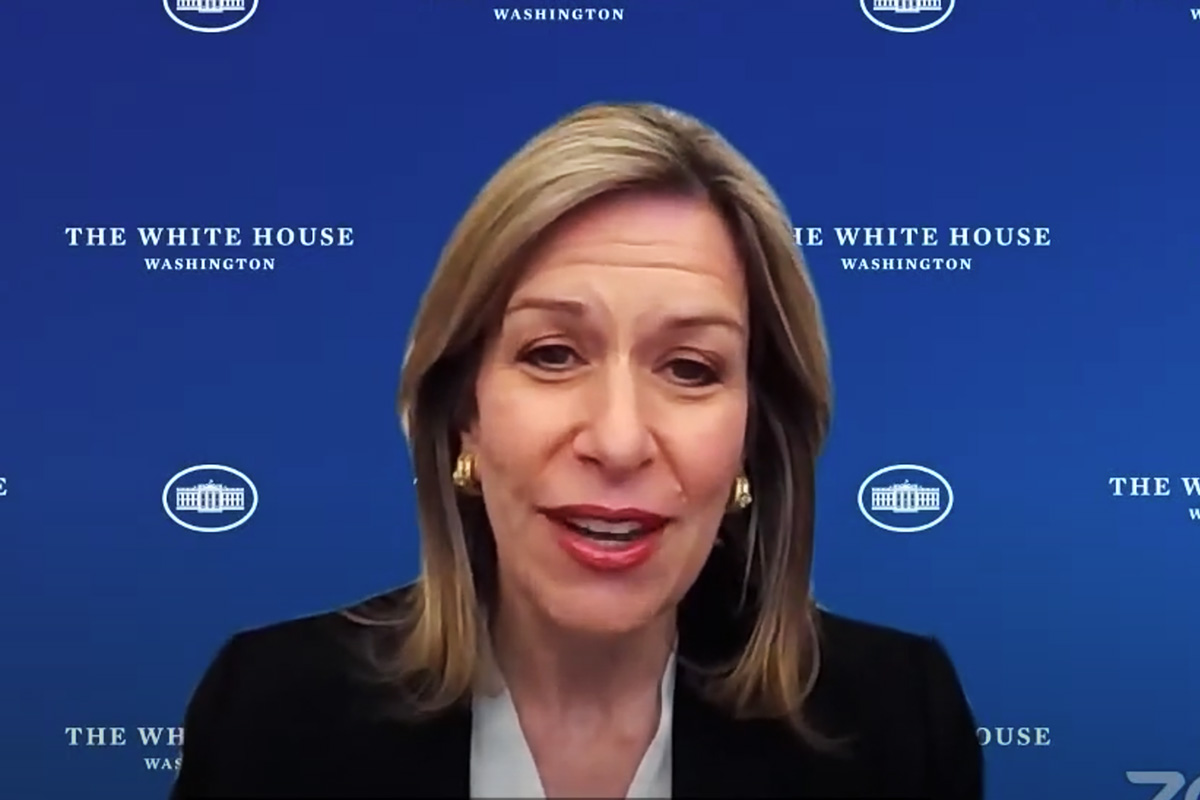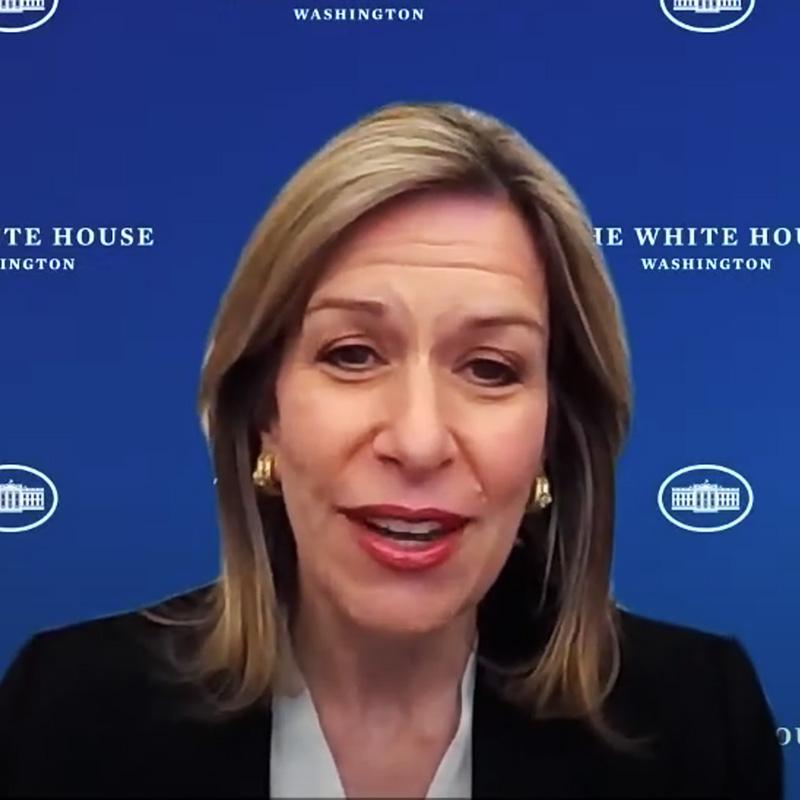On Wednesday, current Homeland Security Adviser Elizabeth Sherwood-Randall joined her counterpart from the George W. Bush administration, Frances Townsend, to discuss threats posed by domestic terrorism.
The webinar was the third “Democracy Dialogues” event, hosted by the University of Virginia’s newly announced Karsh Institute of Democracy, aiming to bring together voices from both sides of the aisle for an in-depth discussion of national issues. Previous Democracy Dialogues events have focused on bipartisan cooperation in the Senate, with U.S. Sens. Tim Kaine and Shelley Moore Capito; and analysis of the Jan. 6 insurrection at the U.S. Capitol, hosted by UVA Center for Politics Director Larry Sabato.
On Wednesday, Micah Schwartzman, the Joseph W. Dorn Research Professor of Law and director of the UVA School of Law’s Karsh Center for Law and Democracy, opened the discussion before Sherwood-Randall gave remarks and fielded questions from the audience and from Townsend, now an on-air national security analyst for CBS News and a member of the governing council at UVA’s Miller Center.
Much of the conversation focused on the National Strategy for Countering Domestic Terrorism, which Sherwood-Randall and other members of President Joe Biden’s administration released this month. The strategy document cites a recent rise in hate crimes and numerous instances of domestic terrorism, including the August 2017 killing of Heather Heyer in Charlottesville during the white supremacist “Unite the Right” rallies.
Sherwood-Randall said the violence in Charlottesville influenced Biden’s decision to run for president and “reflected disturbing trends in our culture that raise the specter of domestic terrorism” that we still contend with today, from hate crimes to the violent riots on Jan. 6 at the U.S. Capitol.
“The use of violence to pursue political ends is a profound threat to our public safety and our national security, and to our national identity, our values, our norms, our rule of law and our democracy,” she said.
When Townsend was in office, from 2004 to 2008, terrorism threats were primarily international. Now, Sherwood-Randall said, officials must keep an eye on international threats while also focusing on rising domestic threats, particularly from individuals motivated by racial bias, anti-government sentiments or both.
“We are seeing domestic violent extremists motivated by a range of ideologies that pose a threat to our country, with racially motivated and anti-government extremists posing the most lethal threat,” she said. “Further, violent extremists who promote the superiority of the white race have the most trans-national connections. … At this time, this is largely an ‘inside-out’ problem, not an ‘outside-in’ problem,” meaning that these domestic individuals and groups do not appear to have significant connections with international terrorist groups.
Right now, “We don’t have a great deal of evidence of the large-scale mobilization and top-down, leader-mobilized efforts that you experienced,” Sherwood-Randall said, addressing Townsend and her work fighting al-Qaida and other international terrorist groups. Instead, most domestic terrorists are alienated “lone actors.”
Sherwood-Randall and Townsend discussed the role technology companies, particularly social media companies, play in the radicalization and organization of such terrorists.






